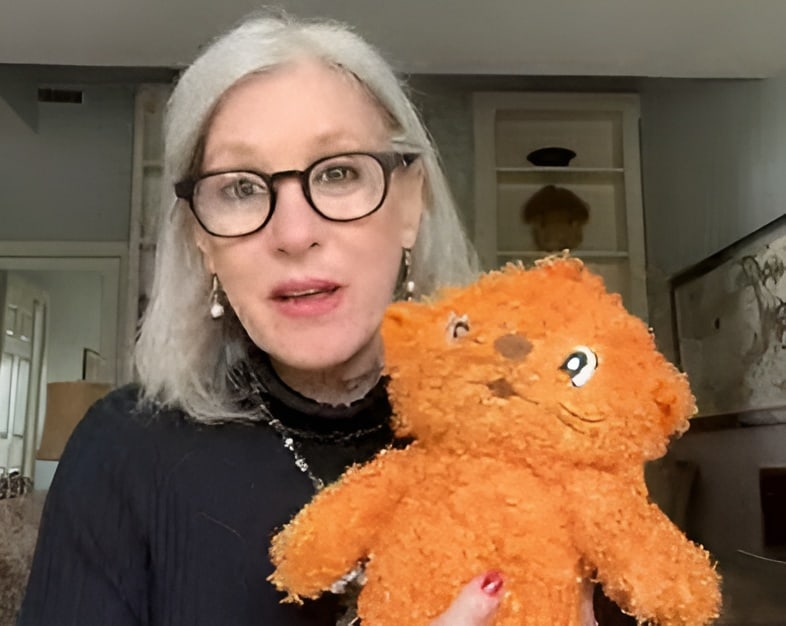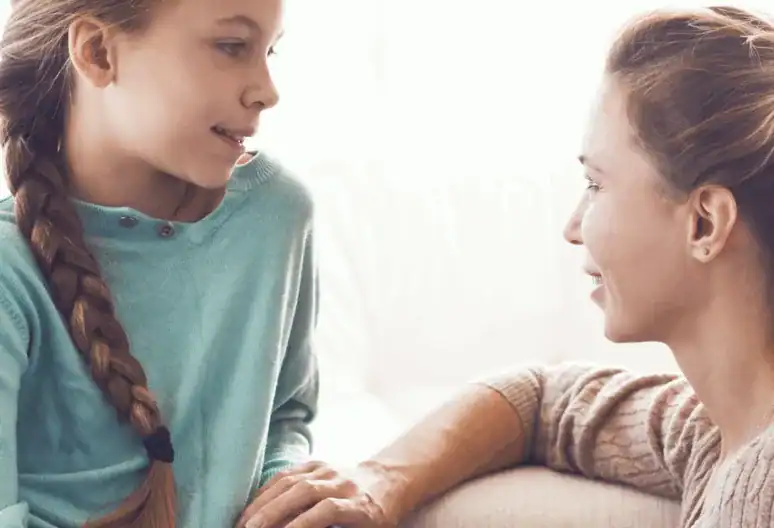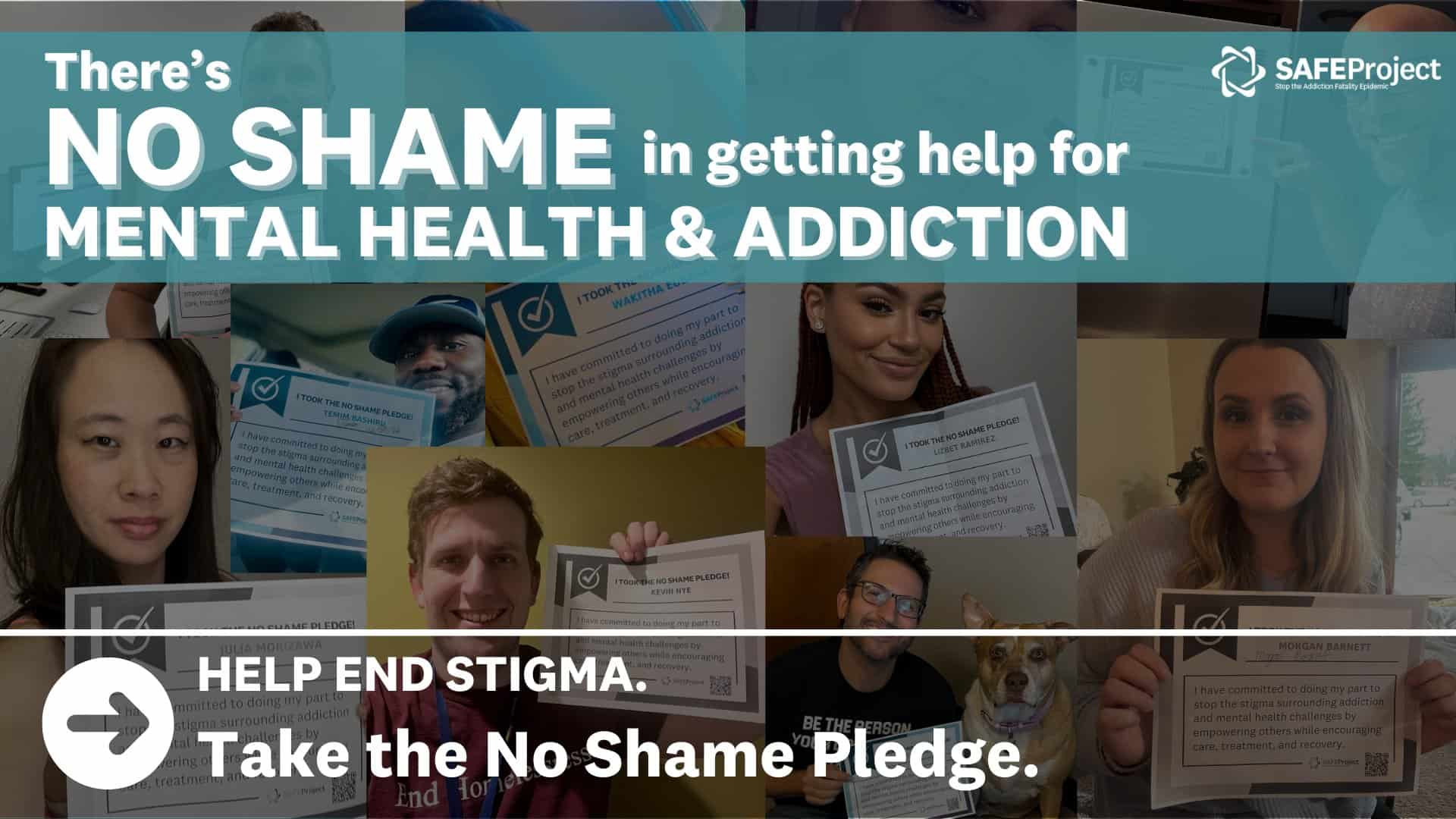Children’s Authors and Illustrators Week 2023 continues throughout the entire month of February here at SAFE Project! Our third interview is with Trish Luna, author of Timbi Talks About Addiction:

Trish was kind enough to sit down with SAFE Project to discuss Timbi’s story within the book, as well as share advice for parents on how to broach the subjects of addiction with very young children.
Introduction
Tell us a little bit about yourself.
I’m at a point in my life where I have less time ahead than I have behind me, and so it really gives a very unique perspective on what’s important, what the things in my life have taught me, and what I’ve lived through.
I am a wife, mother, grandmother of four precious children, and this is the culmination of my life’s work. It has given me such purpose, satisfaction, and gratification to take the things that almost kept me down, almost kept me from not being able to keep going — and to know that I can share and that it can help people — what more could you ask for in life is what I say. So I’m a very blessed woman.
What led to you writing on the subject of addiction and substance use?
It started many years ago. My first husband, the father of my children, developed an addiction after we were married. There are a million different faces to addiction, but in our situation it took hold slowly. There’s the saying how a frog doesn’t know how to jump out of a pot of water if it just gradually warms up; we just kind of become used to different things.
I was just trying to look for resources. I wanted to have something to help us all find language and be able to have this conversation without feeling the shame and stigma. I was very misguided myself in understanding that this person has a disease, but there’s so much anger towards that person. You’re like, well, why can’t you just stop? Can’t you see that this is ruining our lives?
I was devastated to find out, oh, no, we don’t talk about this with families, let alone your children. If I ever mentioned it, let’s say at church or with the pediatrician or even with some friends, you could just feel the wall of judgment coming up.
So I started writing. My children were so young, two and three years old, and most of the books that I was reading to them were in rhyme. I find that comforting, how you can even guess the words, and how you can say hard things. I say to people, they even wrote books about pooping, but we couldn’t talk about this! This was so forbidden.
It was my own family’s experience and then my own experience. Since it was not being recognized as something that had enough value to talk about, it further gave me a sense of “aloneness,” of shame, and that stigma that we all carry internally. It was something we shouldn’t talk about.
It’s important to acknowledge that sadness and anger are very natural feelings to have. So saying, 'it's okay to have those feelings,' making them feel safe, and also really validating their resilience.Trish Luna
Timbi
How did the character of Timbi come about?
Joe was their father, my first husband. Joe was a fireman, and he would work for 24 hours, so he would be gone and then supposed to be coming home that next morning. Originally I would say to my children, “Your daddy has a problem.” I didn’t want to say he was “sick” because I didn’t want the children to equate him being gone with being “sick,” and that not really being what you’re saying.
I didn’t want the kids to be freaked out, but I would say, your daddy has a problem, and the problem is on the inside. We don’t always see it, and it’s hard to explain.
Back in the day, the publishers were the ones who decided what conversations we were having as a society and what were okay subjects. When I tried to get “My Daddy has a Problem” published, no one would touch it. No one would discuss this issue. I tried and tried and tried, and after many years, I just had to put it away and go on with my life.
Fast forward to now, and my daughter also suffers from this disease. She had children, and I was seeing the same things happening. When I searched for resources again for my grandchildren, I was not able to find anything for these very young children, only three and four years old. I thought, you have got to be kidding me, we can do better than this. So “My Daddy Has a Problem” was revived.
I’m a lifelong Al Anon member. We talk about teaching kids calming techniques for themselves and we understand more about ACEs (Adverse Childhood Experiences) and how that impacts the neurobiology of people as they’re growing up. As you’re making these neural circuits, if we don’t have some helpful tools to turn the alarms off, there can be lifelong negative consequences, so it was important to include some stronger coping skills within that story.
It was originally going to still be “My Daddy Has a Problem,” and I put that out to a lot of my friends in the field who work with kids and who know a lot more than I do. What came back was, well, what’s this “problem”? I mean, did we have a math problem? Is the toilet backed up? In trying to still be very gentle with the concept, it really was reinforced that these kids need the word “addiction.” The other issue is it’s not just daddies: it’s daddies, mommies, brothers, sisters, aunts, and uncles. It can affect anybody. The mission is inclusion, that anybody can see themselves there.
The character was just going to talk about addiction. I love alliteration. I was looking for a “T” name and something that would be kind of cute, but not an already known name. I didn’t want it to specifically be a boy or a girl’s name. Timbi came to me standing in my kitchen and it was like, Timbi, Timbi… that’s kind of cute. I was able to Google that and make sure that it wasn’t something already, though it actually is a little village in Africa. It’s been extremely well received and just a cute little name.
The target audience was originally a very personal one. You noted the rhyming style, as well; was that intended for that very specific audience of young children?
That’s exactly right. I will attest that it is extremely difficult to write in rhyme, to say very important things without being sort of obnoxiously rhymed. It takes a lot of time to hone in a message that a young person can hear, to say it to them without speaking down and without it being too overwhelming.
One of the things that I’m always open to hearing is who is getting this material? How is it impacting them? How is it being absorbed? How can it be better? There is a new book coming, Lambi Learns About Addiction: A Book About Prevention, who also talks about addiction, but also prevention. It was interesting when I’m given the whole population of students, when I go out to schools, and especially during Red Ribbon Week, that kind of opens the doors. It allows us to have those conversations without people being like, hey, why are you talking about that with my kid?
The little Pre-K kids, they’re all just so sweet. They just want to kind of hear any story. There’s a line in here where it says, “Sometimes he’s gone. That bothers me, too. When he leaves, I feel worried and sad. Wouldn’t you?” And all those little babies, they answer right back, “Yes!” The older kids, the fifth and sixth and even seventh graders that I was interacting with, they were the ones who were so hungry for these words and the acknowledgement. They were not at all like, “oh, that’s a baby book.“
Timbi starts by asking you to pull up a chair. What is Timbi’s journey and story?
Timbi is trying to have a conversation with people without feeling ashamed or embarrassed. I love the understanding and the openness of folks who hear that a disease is not something a person would pick. I could be your mommy or daddy who’s sick.
It’s about exposing them to those words and knowing that this is something that we can talk about. One of the main things I wanted to be able to say about my kids was, “you see, with my dad, he’s so big and so strong, you might look at him and think nothing is wrong.” That’s the thing with this disease. My husband was a fireman and a police officer. He was a helper. If you saw us, you wouldn’t look and think, oh, my goodness. You would have no idea. I will say personally, for my children, they weren’t exposed to active addiction in front of them. Their dad just didn’t come home. That was why this page was included: “Other days, he’s just gone. And that bothers me, too.”
It’s important to acknowledge that sadness and anger are very natural feelings to have. So saying, “it’s okay to have those feelings,” making them feel safe, and also really validating their resilience.
Where can people buy the book?
We have a website, timbi.com/, and you can contact me right from there. There is also nonprofit pricing for the set. It has just been a crazy 2023 so far, and I have not been able to get them restocked, but the book is normally also available on Amazon.
I also just want to share that it was very important to me that this story be available to any person who needs to hear it. If you go on the website, there is a YouTube version with the story being read with the illustrations behind my back. It’s out there for all who need it.
Thank you to Trish for sharing her story, as well as her advice for parents surrounding the topic of substance use and addiction. Timbi Talks About Addiction is available on Amazon and via the book’s official website.




